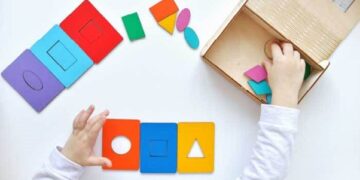
Experiential learning creates environments in which the learner can apply existing knowledge while developing new knowledge and skills in a practical context. Experiential learning must start in the primary school. Even today after five decades of my life I remember a trip our school had organized to a sugar factory in Theur near Pune. We were in standard three then. Sugarcane was pounded to extract the juice and then boiling down the juice in form of syrup for several hours to get jaggery.
We were taught civic sense by making us control traffic at different junctions, we were made to plant trees inside and outside Pune Aakasjwani and meteorology department at Shivaji Nagar Pune. We would visit those offices twice a week to water the plants, to take care of the plants. We had very good teachers for language, maths and drawing. We had bakery class from 6th standard, we hand stitching class which was compulsory. I studied in cohead Marathi Medium school named Bharat English School, Shivaji Nagar, Pune. 7th standard onwards we were taught to collect data from green grocers, farmers, police, doctors, lawyers about intricacies about their professions. We celebrated different festivals for knowing our culture.
Great poets such as Vinda Karanadikar, Shanta Shelke, author Va Pu Kale, mathematician D.R.Koperkar visited our school and we have heard poetries and prose straight from the horse’s mouth. Students from lower financial strata came to my school, it was not a famous school, but our principal used his contacts and brough great Marathi scholars to our school. My school developed a good educational system that delivered higher-order goals, such as the encouragement to grow in life, good attitudes and a sense of morality, justice, and optimism, which is quite challenging endeavour.
It is a mix of traditional and experiential education which can prepare students for real life in today’s VUCA world. Today, because of noncognitive skills which are called “soft skills” such as motivation, integrity, negotiation skills, team building, and interpersonal interaction the students get ready to face the complex world. Soft skills are associated with an individual’s personality, temperament, and attitudes. People have forgotten using pleasantries, manners etiquette etc. Non-cognitive skills, significantly complement and enhance the confidence of students which are often neglected. The most prominent non-cognitive skills include openness to experience, conscientiousness, extroversion, amiability, and emotional intelligence. These skills have a strong ability to withstand adversities and to predict long-term outcomes from life.
At the primary education level, experiential learning can involve interactive activities, educational games, field trips, and experiments that allow young learners to explore concepts through hands-on experiences. These experiences spark curiosity, promote engagement, and lay the foundation for future learning.
In India, the focus on exam-oriented education has restrained students’ innate curiosity and suppress their ability to explore, innovate, and discover. The pressure to conform to a predetermined path can leave students feeling trapped, unable to pursue their passions or talents beyond the prescribed curriculum. People must flourish in their career, enjoy what they are doing. This rarely happens.
In the age of information, the dynamic nature of workforces has undergone constant and consistent transformations to adjust to the advances in technology, a global pandemic, and an ever-evolving workplace. The pandemic drove a new chapter in learning, as students from across the world took to digital platforms to finish coursework and learn new skills. Meanwhile, a key concern that found credibility on a global scale was the gaps left by traditional education in the employability of a graduate. Post-secondary education, aimed at training masses to become employable, has long needed an upgrade to serve the true requirements of evolving industries. Every industry currently experiences rapid transitions internally to cope with the advancements in technology, and methods of doing business are more transient than they ever were.
Most universities have curriculums that don’t match what today’s industries need. Students are often taught old or irrelevant syllabi. When these students graduate, they find that their knowledge doesn’t fit the requirements of modern jobs. This mismatch creates high amount of unemployment in India.
In beginning in the 1970s, David A. Kolb helped develop the modern theory of experiential learning, drawing heavily on the work of John Dewey, Kurt Lewin, and Jean Piaget. In France, the educators are constantly concerned about the danger of being labelled as irrelevant in today’s educational climate that focuses attention on the importance of science, technology, and professional career preparation. French universities have been successful at promoting a synergy between the traditional and the professional education. The goal is not to do battle between competing ideas, but rather to increase the value of both through interdisciplinary partnerships.
The challenges that we often face in India is while building meaningful collaborations with industry, university and government. We must overcome it. Interdisciplinary learning encourages students to reflect critically on every new idea or issue they encounter, considering it from multiple perspectives.
Experiential learning is learning through reflection on doing. It focuses on the learning process for the individual. An internship in company where a student goes through sales training in which he learns how to handle customers and preparing bills. By sitting in classroom and reading sales management and accounting from books and lectures he can only imagine, but during internship he gets hand on experience. Apprenticeships, externships, fellowships, field work, internships, workshops, seminars etc are part of experiential learning.
Experiential learning encourages students to learn from their mistakes and fosters a sense of self-confidence and continuous learning. Finally, experiential learning promotes innovation, creativity, and problem-solving skills, as students are actively engaged in project-based learning and problem-solving activities. In contrast, traditional learning typically relies on lectures and textbooks to convey information and may not provide the same level of engagement, practical application, and skill development.
In Japan a model of teacher-led research in which a group of teachers collaborate to target a particular area for development in their students’ learning. Based on their prior teaching, the group of teachers work together to research, plan, teach and observe a series of lessons, using ongoing discussion, reflection and expert input to monitor and improve their teaching.
There is vast difference in teachers with industry experience and teachers with degrees teaching in higher education. Teachers with industry experience bring practicality in teaching. Today Universities need experts in board of studies to upgrade syllabi every two-three year as the world is changing too fast. Knowing the academic side is only half the battle: understanding how those skills get used in the real world gives vital context and often makes things make more sense, it provides the reality that supplements the textbook versions of the same fields.
The real world is all about learning by making mistakes. While more traditional learning methods might end with a test or a graded paper, experiential learners do find themselves encountering holdups, yet they grow from them in many ways.













































